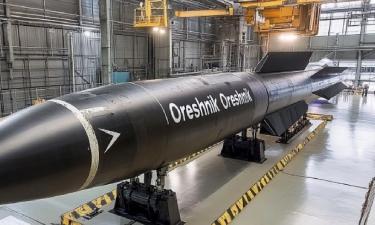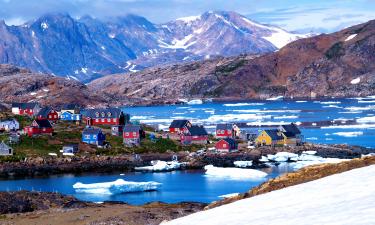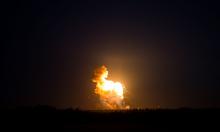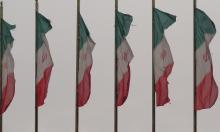2004 forecast: Russia to face great future
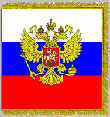 Majority of people of political elite is welcoming New Year with a sense of assurance of the country's future prosperity. Previous year of 2003 proved people's indifference toward the realm of politics. Previous elections (December 7th, 2003) have once again proved this fact. Even oppositional leaders are certain of the country’s stability in this upcoming year. Not everybody however welcomes such new positive moods.
Majority of people of political elite is welcoming New Year with a sense of assurance of the country's future prosperity. Previous year of 2003 proved people's indifference toward the realm of politics. Previous elections (December 7th, 2003) have once again proved this fact. Even oppositional leaders are certain of the country’s stability in this upcoming year. Not everybody however welcomes such new positive moods.
By the end of 2003, many of the experts began to express their worries regarding the fact that current stability in the country might actually soon result in a new period of stagnation. They attempt to prove that present Russia looks remarkably similar to the country of mid 60s. A new extremely popular country's leader, stability, talks about drastic economic reforms, people’s concentration on their own private businesses, improving living standards—all of these factors resemble the times of Brezhnev's era.
Obviously, Putin looks nothing like Brezhnev. Hopefully, rightists will turn out to be optimists in the end. However, today’s seemingly peaceful facade conceals at least six major problems. Some of them have been created by the political power itself. Theoretically, they are quite easy to solve. Others, on the contrary, appear to be of objective character and cannot be solved as easily. In sum however all of these problems possess one commonality. In the nearest future, they might appear to be simply “paper tigers.” In the long run however, they present an enormous danger of a delayed-action mine.
Vladimir Putin similar to Boris Yeltsin in the 90s is urged to stabilize his regime with “qualitative renovation of political elite,” considers General Manager of the Union of national strategy Stanislav Belkovsky. According to Belkocsky, the elite of the 90s has to be fully removed from the governing power.
Such objective need to change the country’s political course has become evident right after the elections of 2003, considers the experts. These elections served as the main reason for the destruction of existing liberal parties as being representative of the era of the 90s.
However, the “Yeltsin’s elite” has not been changed with Putin’s yet. Vladimir Putin remains the “lonely President,” missing that substantial group of supporters which could help him in times of crises. More so, aside from the ideological defeat of former elite groups, their representatives continue to control administrative, political and informational resources.
Stanislav Belkovsky thinks that taking into account today’s situation, the main question should be the following: will the Kremlin continue its course with inevitable change of the political elite, or will the choice be made for the cosmetically corrected old course? In the second case, Russia will face a complete disintegration and consumption of its smaller pieces by more powerful countries as soon as 5-7 years, assures Belkovsky.
According to Joseph Diskin, Vladimir Putin has been facing rather difficult problems right before the elections of 2003. “The President should stop being a hired manager. He is a missioner by nature. He has to make a statement of a new vision of Russia, of the country’s future. Only then will people vote not just for the President's good personality, but for their own personal future,” considers Diskin.
Such is Putin’s ultimate goal. “Currently, Putin is not ready to become the country's leader in 2008. He is not the kind of person who lives the power,” states Stanislav Belkovsky. Both political analysts are certain of the fact that there might be no Great Russia after all. "History did not give us any other choice," concludes Joseph Diskin.
Egor Belous
Pravda.Ru
Subscribe to Pravda.Ru Telegram channel, Facebook, RSS!
